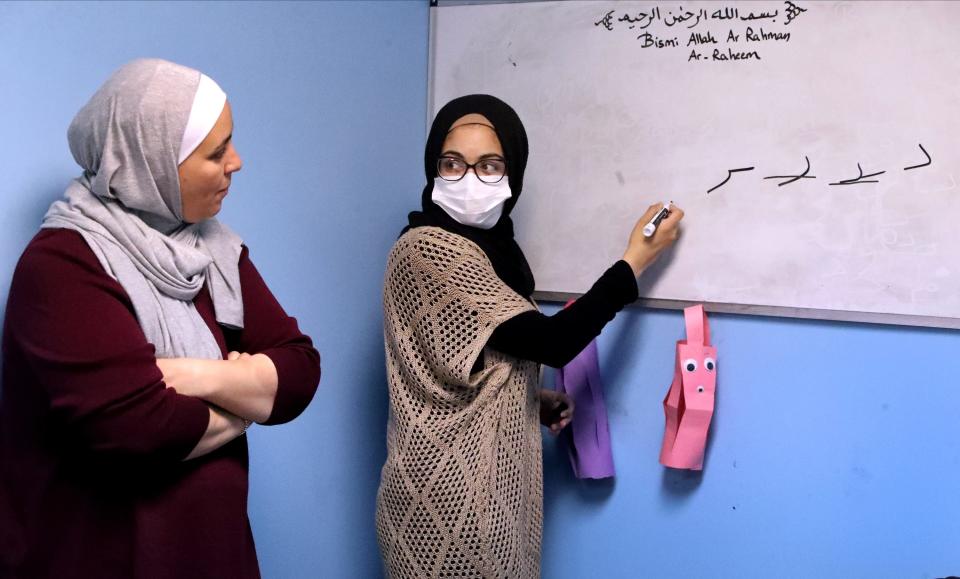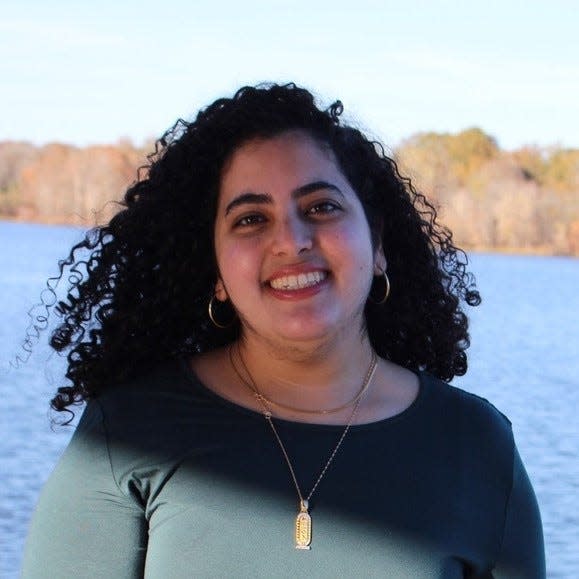Offering driver’s license exam in Arabic is about more than language | Opinion
On April 24, I was scrolling through Facebook when I saw an article published by Marissa Sulek on “an Arabic man” who had failed the driver’s license test 14 times. As a Coptic woman, I had three reactions: first, there’s no such thing as an “Arabic man.” Did she mean Arab? Coptic? Did she care? Second, the comments were going to be a slew of racist bigotry. Third, we’ve known this story. It’s been a problem for decades. Nevertheless, I opened the article.

As I expected, the article was deeply lacking of any analytical, compassionate understanding about how this man knows how to drive, that his record is good, that he had a license from other states, that he has studied extensively, that his English is fluent, and yet continues to fail this test. Of course, the comments section was even worse.
After decades of enduring this backlash, I want to clarify multiple points here.

First, driving is not American exceptionalism. Many places around the world have cars and have driving procedures, which naturally points to the fact that one does not need to speak English in order to learn to drive. Because cars were developed in a time of high illiteracy in the West, symbols, colors, and basic words are modes of communication: yellow indicates to slow down, orange a construction site and red a full stop. One would need English in order to read Shakespeare or DuBois, but one does not — and shouldn’t — need English in order to drive or to understand the rules of driving in the U.S. Moreover, the majority of accidents that happen in Nashville are due to speeding and distracted driving (usually caused by the use of phones), which have little to do with understanding the rules and more to do with obeying them.
Hear more Tennessee voices: Get the weekly opinion newsletter for insightful and thought-provoking columns.
Second, when one makes these racist arguments to bar neighbors from receiving a driver’s license, one is also demonizing our people when we are the ones who serve you drinks downtown before a Preds or Titans game; when we’re the ones who put food on your table and deliver your packages right to your door; when we clean the halls and schools and buildings, it’s demonizing and patronizing to tell us — who support your lifestyle and your needs —that we should not have mobility and freedom in the South. Being able to drive means taking my kids to the zoo, starting my own business, leaving an abusive situation, choosing where I work. These are rights you’re depriving your neighbors of because of your racism.

Your state. Your stories. Support more reporting like this.
A subscription gives you unlimited access to stories across Tennessee that make a difference in your life and the lives of those around you. Click here to become a subscriber.
Third, the issue is not a lack of knowledge of English. From experience working on the ground with Arabic-speaking Christians and Muslims, the biggest issue is a lack of time to study. Between taking care of your kids, paying rent, studying for your citizenship exam and studying U.S. history, and also arranging rides to and from work, it’s extremely difficult. Parents have their kids quiz them while they cook dinner. They promise to take their kids out and have fun, knowing that immobility takes a mental toll on children who are homesick. They also are still orienting themselves to this country — where to buy food, where to pray, where to buy furniture.
I am a big supporter of offering the driver’s license exam in Arabic. The majority of states in the U.S. already offer it in Arabic. Tens of thousands of our neighbors speak Arabic across the state. Human dignity and community resiliency should proceed any racist, bigoted, pro-corporate stances. We built this city. We deserve the fruits of our labor.
Lydia Yousief is a Nashville resident who attended Vanderbilt University and graduated in Middle Eastern studies. She then studied at University of Chicago’s Center for Middle Eastern Studies, where she completed her master’s thesis on Coptic identity-making through pilgrimage. She is a founder and director of the Elmahaba Center in South Nashville, a nonprofit organization supporting Arabic-speaking peoples through community-responsive programming like ACT classes, tutoring, college prep, weekly livestreams, diaper banks, food distribution and meals, and community networking.
This article originally appeared on Nashville Tennessean: Offering driver’s license exam in Arabic is about more than language

